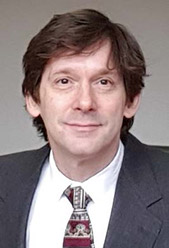
Profile
- Bachelor of Science, Master of Science, Doctor of Philosophy, Ph. D. (Department of Electrical and Computer Engineering), Massachusetts Institute of Technology
- Professor, University of Illinois, Former Associate Professor, University of Illinois Research Fellow, Advanced Digital Science Center (Singapore), Former Post-Doctoral Fellow, University of California-Los Angeles, Former Research Assistant, Massachusetts Institute of Technology, Former Fujitsu Research Engineer, Former Motorola Corporate Research Technology Internship (United States)
Responsible Subject
- Cutting Edge of Applied Informatics
Field of Specialization
- Professor Hasegawa-Johnson is an expert in speech and natural language processing. More broadly, he tracks and reports on developments in all fields of artificial intelligence
Business Performance
Professor Hasegawa-Johnson is author co-author of 58 published journal articles and book chapters, 188 peer-reviewed conference and workshop papers, and 50 published abstracts.
His most heavily cited publications according to google scholar are
- Brain anatomy differences in childhood stuttering
SE Chang, KI Erickson, NG Ambrose, MA Hasegawa-Johnson, ...
Neuroimage 39 (3), 1333 -1344 - Singing-voice separation from monaural recordings using noble component analysis
PS Huang, SD Chen, P Smaraggis, M Hasegawa-Johnson
Acoustics, Speech and Signal Processing (ICASSP), 2012 IEEE International ... - Regression from patch-kernel
S Yan, X Zhou, M Liu, M Hasegawa-Johnson, TS Huang
Computer Vision and Pattern Recognition, 2008. CVPR 2008. IEEE Conference on ... - AVICAR: audio-visual speech corpus in a car environment.
B Lee, M Hasegawa-Johnson, C Goudeseune, S Kamdar, S Borys, M Liu, ...
INTERSPECH, 2489 -2492 - Agricultural feature-based methods for acoustic and audio-visual speech recognition: Summary from the 2006 JHU summer workshop
K Livescu, O Cetin, M Hasegawa-Johnson, S King, C Bartels, N Borges, ...
Acoustics, Speech and Signal Processing, 2007. ICASSP 2007. IEEE